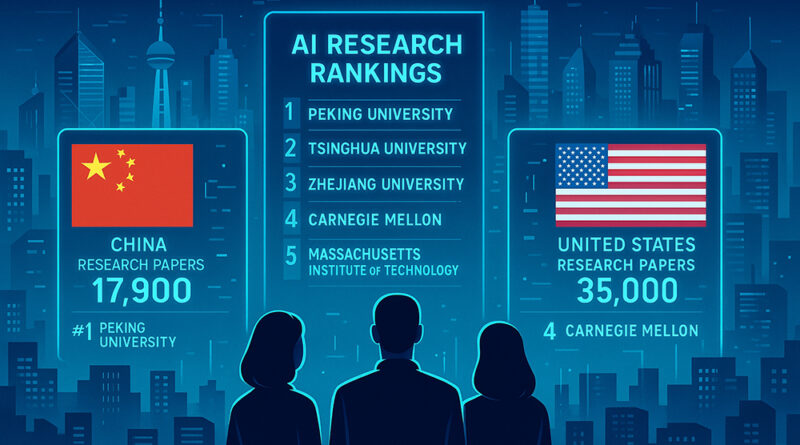Chinese Universities Overtake US Rivals in AI Research Rankings
Chinese universities have surged past their US counterparts in artificial intelligence (AI) research output, signaling a significant shift in the global AI landscape. Recent rankings from AIRankings indicate that Peking University is now leading globally in AI research, ahead of prominent US institutions.
This achievement underscores China’s growing ambition to dominate in artificial intelligence, particularly evident in the rapid success of Chinese AI startup DeepSeek. The firm, founded by Zhejiang University graduate Liang Wenfeng, notably developed its powerful AI model with a team primarily composed of fresh graduates and young scientists from China’s top institutions like Tsinghua and Peking University.
Peking University secured the top position for research papers published in 2024, followed by China’s Tsinghua and Zhejiang Universities. Half of the top ten universities in the ranking are based in China, marking a substantial increase in the country’s AI academic influence. Carnegie Mellon University was the highest-ranking US institution in fourth place, followed closely by the Chinese Academy of Sciences.
The emergence of DeepSeek has further highlighted the capability and competitiveness of graduates from these leading Chinese institutions. The startup has rapidly gained recognition for developing a highly effective AI model, matching and even surpassing the achievements of American tech giants at a lower cost and using less energy.
Despite China’s recent surge, the US remains ahead in overall AI publications over the past decade. US institutes collectively published over 35,000 articles since 2015, nearly double the output of China’s 17,900 articles. Yet, China’s rate of publication is accelerating dramatically, closing the gap significantly since the launch of OpenAI’s ChatGPT in 2022.
Zhu Songchun, head of Peking University’s Institute for Artificial Intelligence, emphasized China’s ability to lead global AI innovation independently, urging the country not simply to follow Western approaches but to chart its own course.
The continued competition between the US and China promises to shape the future of AI, underscoring a strategic rivalry with profound implications for technological leadership worldwide.

